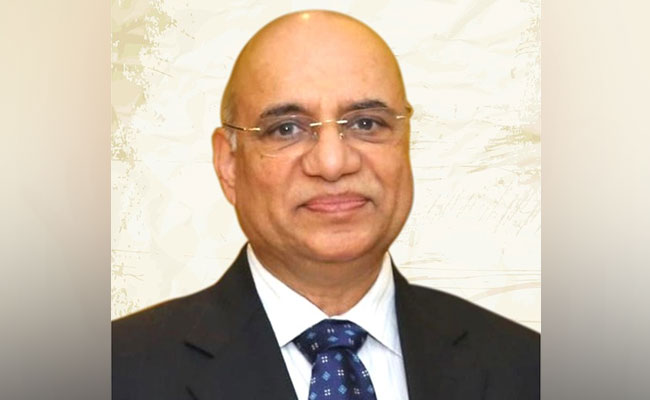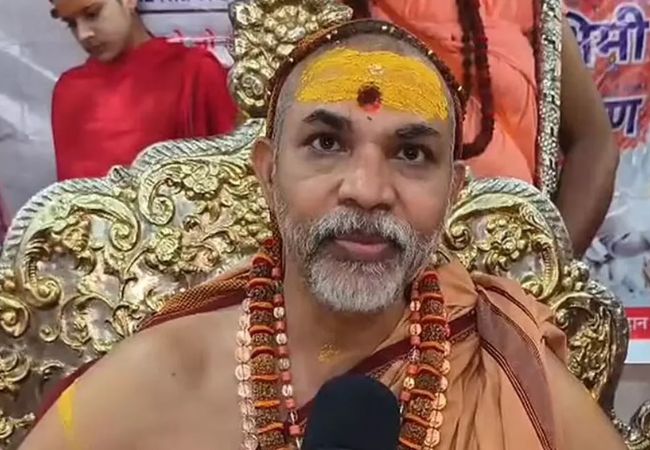Mangalore: Prominent Konkani supporter and advocate for the 'Vision Konkani' program, Michael D Souza, will be leading the Reception Committee for the upcoming 25th All India Konkani Sahitya Sammelan as its President. The event is scheduled to take place at the Basti Vaman Shenoy Stage within the premises of the World Konkani Centre on November 4th and 5th. This marks the first time that Mangalore is hosting the All India Konkani Parishad's event in its 84-year history.
CA Nandagopal Shenoy, President of the World Konkani Centre, and Sahitya Akademi awardee Gokuldas Prabhu have been appointed as Vice Presidents, adding to the distinguished lineup. Konkani poet and thinker Titus Noronha will serve as the General Secretary, while journalist H. M. Pernal will take on the role of Working President within the Reception Committee.
The event is expected to draw approximately 650 delegates from various parts of India, making it a significant gathering for Konkani literature and culture enthusiasts. Sri Michael D'Souza, an NRI entrepreneur and philanthropist based in Abu Dhabi, has been instrumental in supporting Konkani activities and programs both in India and abroad. His 'Vision Konkani' initiative has empowered Konkani writers and artists, providing substantial grants for Konkani book publications, music productions, and feature films.
Under his visionary program 'Vision Konkani', D'Souza has contributed Rs. 40 Lakhs for Konkani book publication grants, Rs. 10 Lakhs for Konkani music grants, and Rs. 25 Lakhs for Konkani feature film grants. He has also established the EDU CARE scholarship program, benefiting 3,500 Konkani-speaking students for higher education under the supervision of CODP, Dioceses of Mangalore.
Various sub-committees have been formed to ensure the smooth functioning of the event, with prominent figures like Poet Melvyn Rodrigues, Chetan Acharya, and Dr. Kasturi Mohan Pai guiding the efforts. Committees have been established for finance, food, venue, front office, volunteers, accommodation, transport, program planning, stage management, media promotion, printing, and souvenir creation.
Let the Truth be known. If you read VB and like VB, please be a VB Supporter and Help us deliver the Truth to one and all.
Lucknow (PTI): The Uttar Pradesh Congress on Wednesday staged a statewide protest demanding a fair and transparent inquiry into the FIR lodged against Swami Avimukteshwaranand Saraswati and those who filed the complaint against him.
In a statement issued here, the party said memorandums addressed to Prime Minister Narendra Modi were submitted through district magistrates in all districts of the state.
Uttar Pradesh Congress spokesperson Manish Hindvi told PTI that the memorandums were handed over through the district administration in all 75 districts.
In the memorandum, the party alleged that Saraswati and his disciples were "unnecessarily harassed and humiliated" by police on the occasion of Amavasya and were prevented from taking a ritual bath (at the Magh Mela). It further alleged that some disciples were manhandled and taken to a police station.
The memorandum also claimed that an FIR was later registered against Saraswati, his disciple Swami Mukundanand Brahmachari and several unidentified persons in a sexual harassment case. It termed the case a "conspiracy" aimed at tarnishing the seer's reputation.
Citing Articles 25 and 26 of the Constitution, the memorandum stated that these provisions guarantee religious freedom and the right of religious denominations to manage their own affairs.
It described the position of shankaracharya held by Saraswati as "one of the highest spiritual posts in Sanatan tradition" and alleged that the entire episode appeared to have been "orchestrated in a planned manner".
"We request that the background of the persons who got the FIR registered be investigated in a transparent manner by a retired high court judge and strict action be taken against them," the memorandum said.
It also sought a "fair and transparent probe" into the allegations levelled against Saraswati so that the truth could be established.
Earlier, Uttar Pradesh Congress president Ajay Rai had told reporters in Varanasi after meeting Saraswati that the party stood firmly with him.
The Congress said it would continue to press for an impartial inquiry into the entire episode.
On February 21, an FIR was lodged in Prayagraj against Saraswati and his disciple Mukundanand Brahmachari on charges of sexually abusing two persons, including a minor, over the past year at a gurukul and religious congregations, including the recently concluded Magh Mela.
Days after he was booked, Saraswati had said on Monday that he would not oppose his arrest and asserted that the "fabricated story" would be exposed sooner or later.
At a press conference on Wednesday, Saraswati alleged that criminals rule in Uttar Pradesh, level allegations and influence investigations, as he denied having any contact with the two persons for whose alleged sexual abuse he has been booked.



_vb_77.jpeg)
_vb_00.jpeg)
